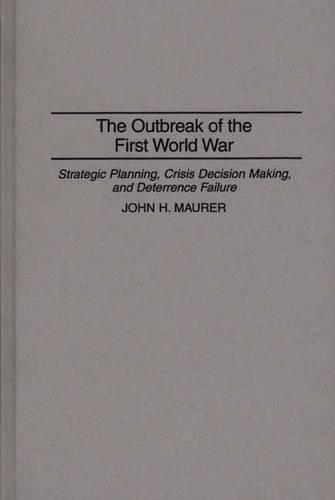
The Outbreak of the First World War: Strategic Planning, Crisis Decision Making, and Deterrence Failure
(Hardback)
Publishing Details
The Outbreak of the First World War: Strategic Planning, Crisis Decision Making, and Deterrence Failure
By (Author) John H. Maurer
Bloomsbury Publishing PLC
Praeger Publishers Inc
18th October 1995
United States
Classifications
Tertiary Education
Non Fiction
European history
First World War
940.311
Physical Properties
Hardback
168
Description
This study examines what led the leaders of Austria-Hungary and Germany to launch major military offensives at the beginning of the First World War. The focus is on understanding why these two countries adopted high-risk offensive strategies during an international confrontation rather than a defensive military stance. The decision to attack or defend did not occur in a political vacuum. The leaders of Austria-Hungary and Germany adopted offensive strategies as a way to achieve their political ambitions. The offensives undertaken by Austria-Hungary and Germany in 1914 thus reflected their political goals as well as the strategic doctrines of war planners. The concluding chapter of this study explores why deterrence failed in 1914.
Reviews
"Historians have long studied the origins of the First World War and both of these volumes make an important contribution to this debate....[M]aurer's study offers a concise and, in its major themes, correct interpretation of the causes of the First World War that is particularly well-suited for classroom use at the seminar level."-The Jornal of Military History
Historians have long studied the origins of the First World War and both of these volumes make an important contribution to this debate....[M]aurer's study offers a concise and, in its major themes, correct interpretation of the causes of the First World War that is particularly well-suited for classroom use at the seminar level.-The Jornal of Military History
Author Bio
JOHN H. MAURER is Associate Professor in the Strategy Department of the U.S. Naval War College where he lectures on naval history and strategy, international history, and strategic studies. He is also the assistant editor of the journal Diplomacy and Statecraft.
